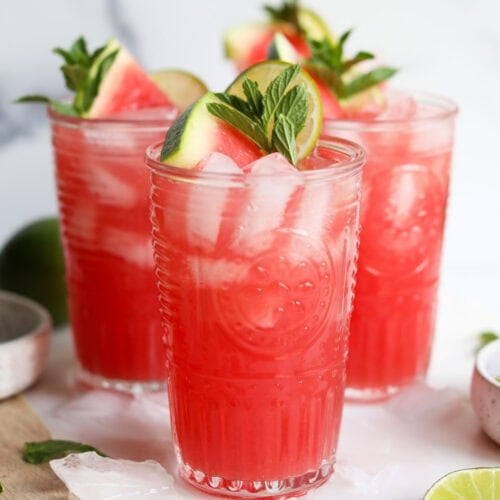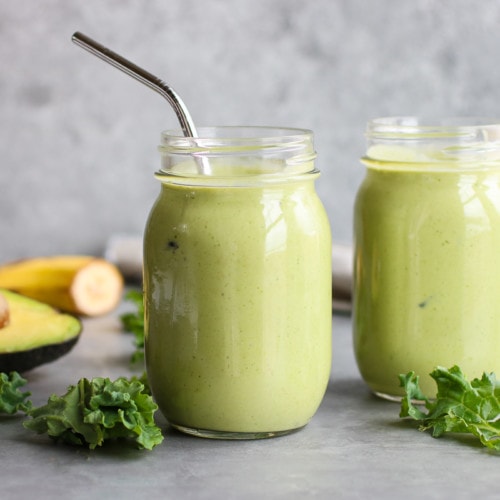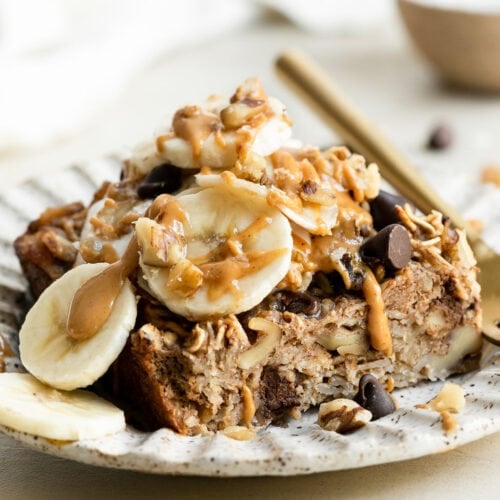Getting ‘enough electrolytes’ is a common topic of discussion with our readers. Since we’re a team of registered dietitians creating health-promoting recipes, it’s our goal to help you eat a balanced diet with delicious foods. And electrolytes are one type of nutrient that’s all about balance.
While many of us imagine a bottle of Gatorade or a banana when electrolytes are mentioned, the reality is a little more complex. I break down what electrolytes are, what they do, and how to get them in this overview.
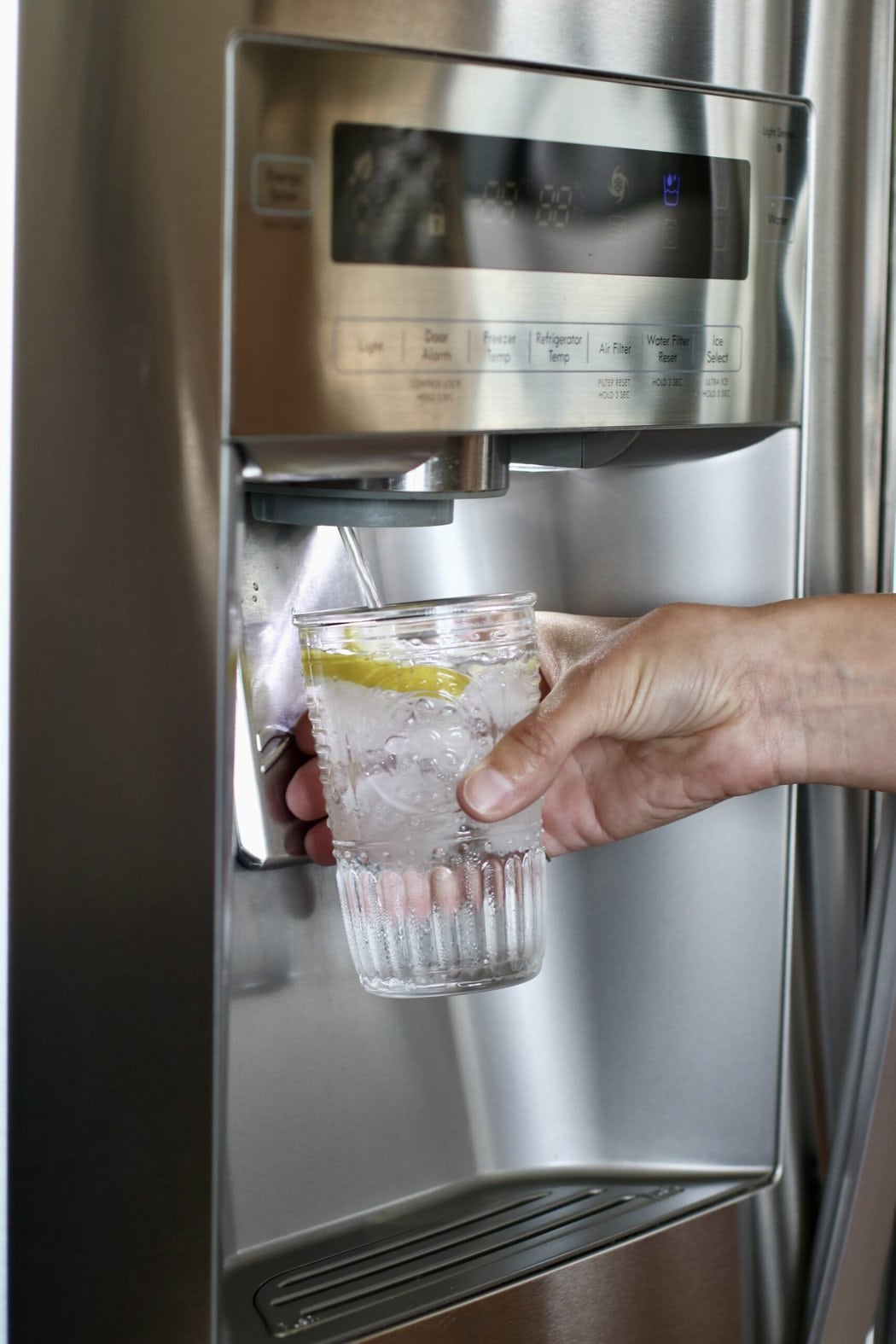
What Exactly Are Electrolytes?
Electrolytes are specific minerals that have a positive or negative charge after being dissolved in water or blood. They’re important for health and support your body’s ability to maintain homeostasis in many ways, from muscle function to your body’s pH levels.
These are the electrolytes your body needs and uses every day:
- Sodium — the most abundant electrolyte in your body, sodium helps cells absorb nutrients and maintain the right fluid balance
- Magnesium — this electrolyte helps turn nutrients into energy, especially to aid muscle contractions and nerve cells in the brain
- Potassium — this electrolyte is critical for proper heart function and works in tandem with sodium to keep a fluid balance in your body’s cells
- Calcium — in addition to building bones and teeth, this electrolyte helps control muscle function, supports nerve function, and helps manage your heart rhythm
- Chloride — the second most abundant electrolyte in your body, chloride plays a key role in fluid balance and helping your body maintain its natural pH balance
- Phosphate — this electrolyte is a key component of the molecules that make up your DNA. It helps your cells metabolize nutrients, and it transports chemicals and molecules outside of your cells
- Bicarbonate — the carbon dioxide that doesn’t get excreted from your body through your lungs gets recycled into bicarbonate, which your body uses to maintain blood pH levels
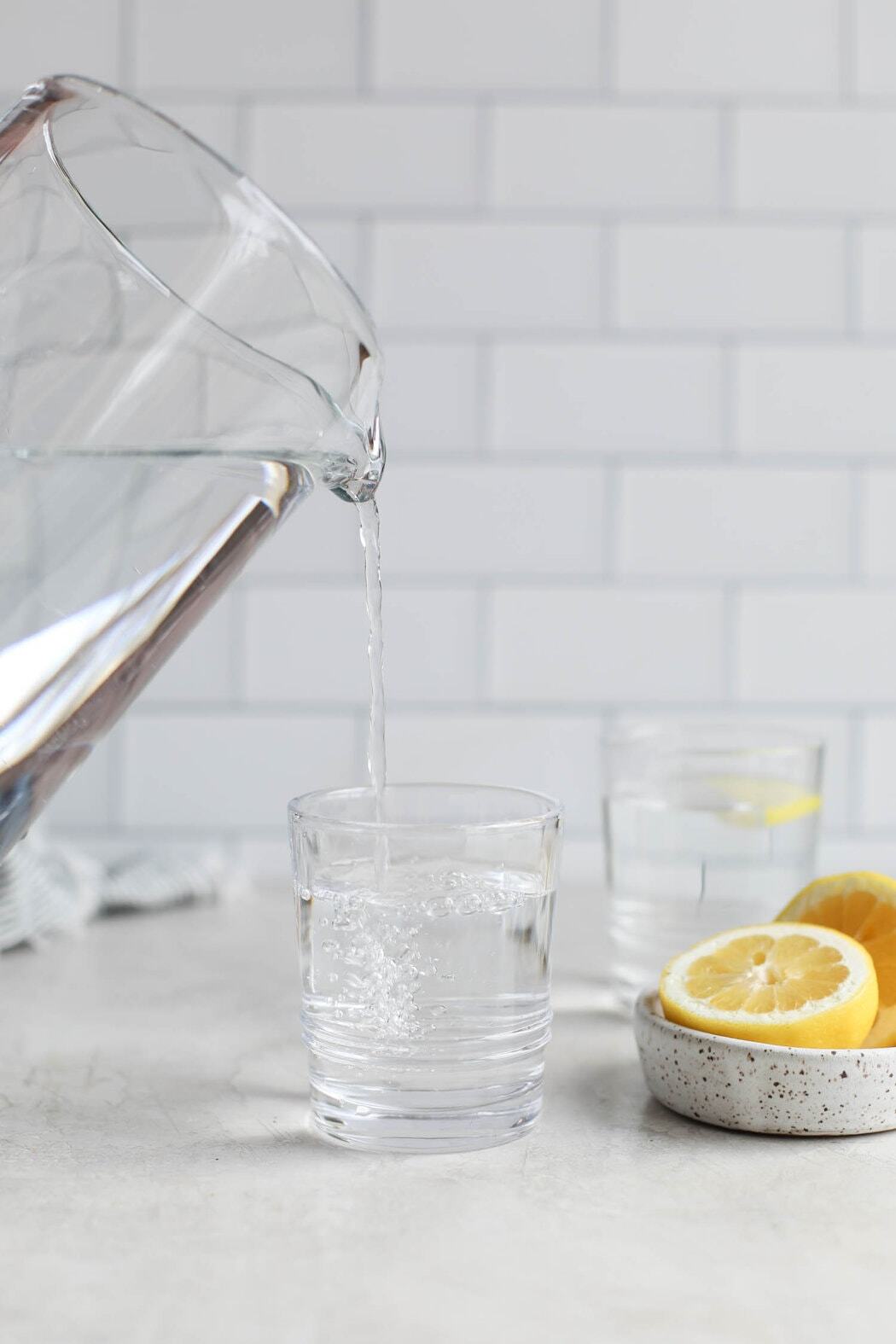
Why Electrolytes Are Important In The Human Body
Electrolytes don’t supply energy, but you need them in small amounts for many things, including metabolism, building bones and teeth, building immunity, and – most importantly – maintaining your body’s fluid balance.
An adult human body is about 60% water. Think about that. The amount of water in your body is massive and important. Fluctuations in that amount (either too much or too little) can cause significant health issues. Electrolytes help your body maintain a good fluid balance inside and outside of cells.
Here are the seven main functions of electrolytes in the body:
- Balancing fluids in and around your body’s cells
- Balancing the pH level of your blood
- Preventing irregular heartbeat (keeping steady heart rhythm)
- Helping your body metabolize nutrients
- Moving nutrients in and out of cells
- Removing waste from your body’s cells
- Maintaining a steady blood pressure
Normal Electrolyte Ranges
Electrolyte levels get measured through a blood test. Your results are affected by age, gender, and preexisting health conditions. But generally, normal adult ranges for electrolytes are:
| Electrolyte | Normal range |
|---|---|
| Sodium | 136 to 144 mmol/L |
| Magnesium | 1.7 to 2.2 mg/dL |
| Potassium | 3.7 to 5.1 mmol/L |
| Calcium | 8.5 to 10.2 mg/dL |
| Chloride | 97 to 105 mmol/L |
| Phosphate | 2.5 to 4.8 mg/dL |
| Bicarbonate | 22 to 30 mmol/L |
Test results that show too high or too low levels of electrolytes could indicate something is going on with your health that needs addressing. But having a lab electrolyte panel that shows numbers outside of these ranges doesn’t necessarily mean there’s a problem. Depending on your health history and how far outside these ranges your results are, your provider will likely order additional testing to get more information.

Symptoms Of Low Electrolytes
If your electrolyte levels get too low or too high, you may experience a variety of symptoms, such as:
- Muscle spasms or twitching
- Muscle weakness
- Muscle cramps
- Blood pressure changes
- Irregular heartbeat
- Numbness, especially in the extremities
- Excessive fatigue
- Frequent urination
- Headaches
- Confusion, lightheadedness, or brain fog
- Seizures
Some signs of low electrolytes that your provider may notice or test for are:
- Adrenal insufficiency
- Hyperglycemia (high blood sugar levels)
- Bone disorders, coma, heart failure, or nervous system conditions, in severe cases
Your healthcare provider can help you understand and address electrolyte test results and your unique set of symptoms.

When To Get Extra Electrolytes
Since electrolytes are so important to the proper functioning of your body, your body does a really good job of regulating electrolytes on its own. You get most of your electrolytes from the minerals that are in the foods and drinks that you consume.
However, electrolytes can become imbalanced. Here are some common reasons why:
- Dehydration — not drinking water consistently or getting enough fluids
- Excess sweating — either as an acute response (to heat or movement) or as a chronic condition
- Malnutrition — not getting a consistent intake of essential nutrients or getting some in excess while getting low amounts of others
- Drinking alcohol — your body excretes water and electrolytes in response to alcohol
- Chronic health conditions — including thyroid disease, kidney disease, adrenal gland disorders, or cancer
- Vomiting or diarrhea — as a response to infections, medications, food poisoning, GI distress, pregnancy, medical treatments, stress, motion sickness, smells, or concussion
- Eating disorder — conditions like anorexia nervosa and bulimia nervosa affect electrolyte balance
- Burns — the skin helps protect against fluid and electrolyte loss, so injuries to the skin can result in an electrolyte imbalance, especially severe burns
- Drinking too much water — can cause an electrolyte imbalance known as hyponatremia or water intoxication
- Taking diuretics — if you’re prescribed diuretics to reduce fluid buildup, your doctor will likely test your electrolyte levels regularly, as these medications can disrupt their balance
If you have poor hydration, are sweating more than normal, vomiting, drinking too much plain water, or not eating a balanced diet, for example, you could be at risk of an electrolyte imbalance. In that case, you can get more electrolytes through foods, fluids, and/or supplements.
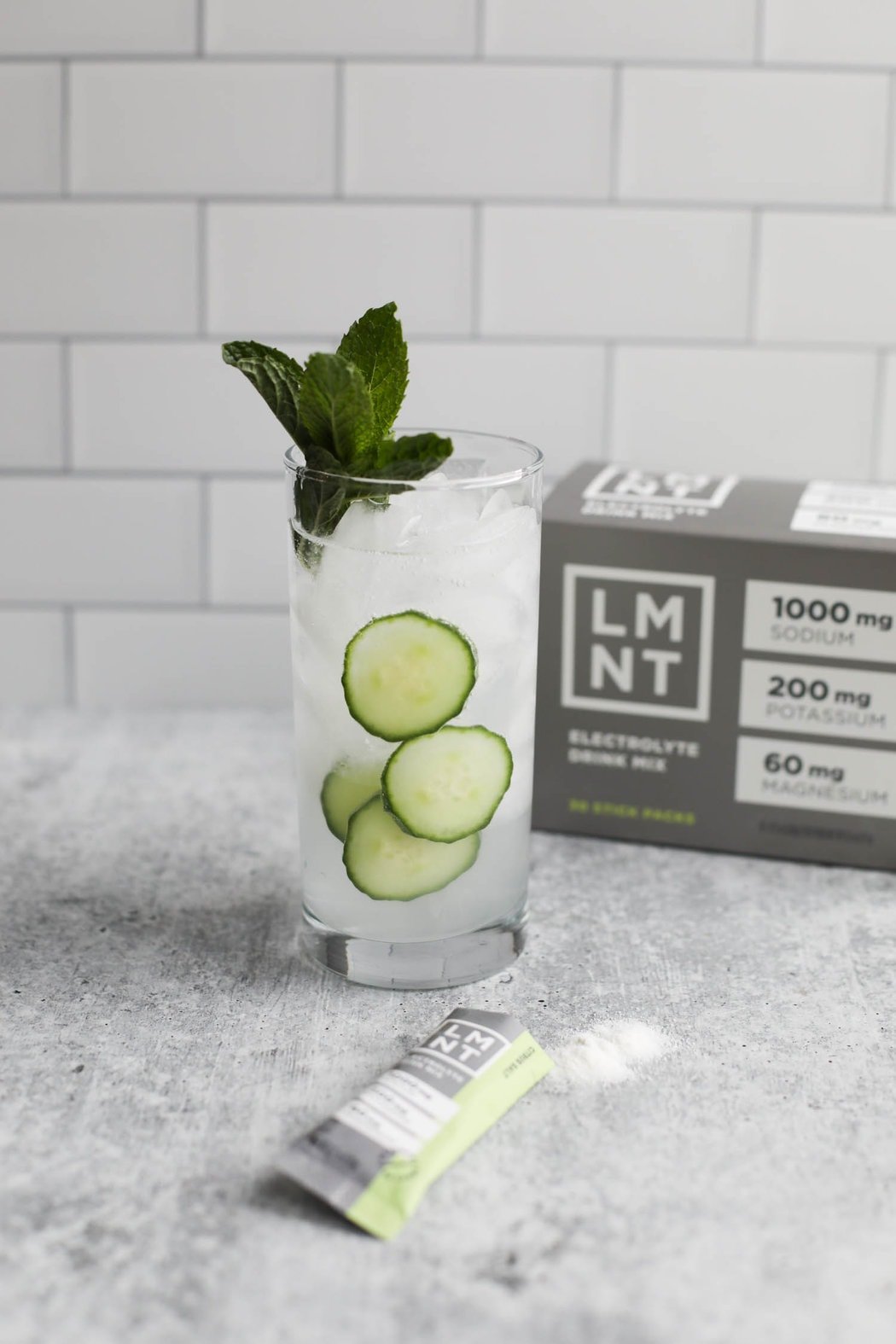
How To Get More Electrolytes Daily
Some food types that are high in minerals (and therefore contain electrolytes) are vegetables, leafy greens, fruits, nuts, seeds, beans, dairy products, lean meats, fish, and seafood. When you eat a balanced diet that contains a variety of these foods every day, you will likely meet your normal electrolyte needs.
Specific foods and drinks that are especially good sources of electrolytes are:
- Homemade sports drinks
- Bananas
- Watermelon
- Coconut water
- Cucumber water
- Almonds, Brazil nuts, and cashews
- Milk
- Fruit juices
- Smoothies
- Avocados
- Sweet potatoes
- Spinach
- Table salt or salty condiments
You can also get electrolytes from electrolyte drinks (such as sports drinks) or electrolyte packets or tablets that you add to water or other fluids.

Do You Need To Take An Electrolyte Supplement?
There will be times in your life when you could benefit from taking an electrolyte supplement for a faster recovery and to help your body restore its natural balance of electrolytes. Some examples are:
- During or after exercise or work in extreme heat or at high exertion
- When sick and losing bodily fluids through vomiting or diarrhea
- If you’re not eating a balanced diet and getting a low intake of nutrient variety and fresh foods
- The day after consuming excess amounts of alcohol
- When traveling, you may be more likely to become dehydrated or be exposed to environmental changes that cause bodily fluid shifts
In these cases, drinking an electrolyte drink (our favorite is LMNT drink mix) can help you quickly restore fluid and electrolyte balance. Of course, no one needs an electrolyte supplement to support basic bodily functions, especially not every single day, but it can be helpful to round out your nutritional needs.
Should Kids Drink Sports Drinks To Replenish Electrolytes?
Most young kids do not exercise or play sports at a length or intensity that requires an electrolyte drink as long as they are having sips of water before, during, and after. Young kids who drink sports drinks, especially sugary ones, are likely getting more nutrients and added sugars than they need.
Depending on the quality of the drink, they may also be ingesting more artificial colors and sweeteners than is good for their long-term health. Water, milk,100% fruit juices (mixed with water), and real food-based homemade sports drinks are good fluid options to offer young kids.
But kids or teens who play sports at a higher intensity, are physically active for an hour or longer, or are training or competing in extreme heat could benefit from an electrolyte drink or drink mix. These are designed to contain some sugar for quick energy and electrolytes for fluid balance.
For ultimate success, we highly recommend reading the tips in the full blog post above. All photos and content are copyright protected. Please do not use our photos without prior written permission. If you wish to republish a recipe, please rewrite the recipe in your own unique words. Link back to the source recipe here on The Real Food Dietitians. Thank you!

